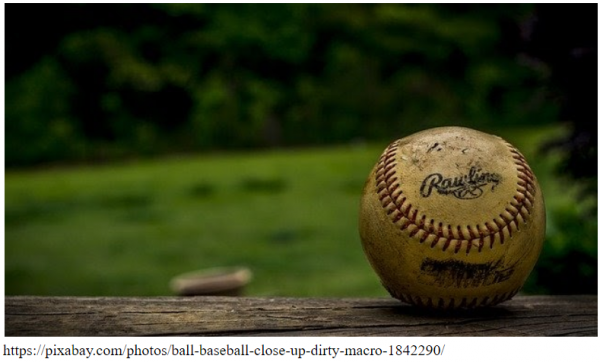A guest article by Charles S. Farrell from the DRSEA Informer
Volume II, Issue 17: A Publication For Your Reading Enjoyment
Major League Baseball finds itself between a rock and a hard place as it tries to address the problem of age and identity falsification among prospects in the Dominican Republic. At the same time, the league is facing increasing criticism for its investigations into the situation.
A top baseball official told me recently that he believes the amount of fraud by young players and buscones has escalated. “We are doing our best to manage this problem,” he said. It is estimated that somewhere between 70 and 120 suspected cases of lying about age and/or identity are currently under baseball’s microscope.
I have an idea on how to end the problem, how to make identification of potential Dominican signees almost foolproof, but the question is: Will anyone listen?
Here is the idea. Education is mandatory in the Dominican Republic through the fifth grade. The dropout rate after the fifth grade takes off at an alarming rate for a variety of reasons. One reason is the lack of resources for a proper education; 78 percent of Dominican youth do not complete the full eight years of primary education. Sadly, it is estimated that one in 10 children never even attends primary school.
Why not start a fingerprinting program for boys in the fifth grade (or earlier), and create a data base against which identities can be checked in six years, with 16 being the age when Dominican males can sign with Major League Baseball teams? Radical yes, but as anybody who has ever watched TV knows, fingerprints don’t lie. The fingerprints you are born with are the prints you carry for life; no two people have the same fingerprints.
The fingerprinting idea was actually pitched to me by another baseball executive, who pointed out that in Venezuela children who apply for their cedula (national identification card) at 9-10 years old are automatically fingerprinted at local administration offices. “If the DR had this, we’d catch more players trying to misrepresent their age,” he said. But he also pointed out that “The problem is way bigger than MLB……..it all starts with the (Dominican) government.”
He went on to explain that Major League Baseball has lobbied the Dominican government to amend the Ley de Deportes to regulate buscones, their facilities and their fees, among other things. “Those efforts received little support from the authorities. Cooperation and interest in some of these areas we identify as ‘issues’ in our game are lacking.”
Without cooperation and interest from the Dominican government, the issue of age/identify falsification will continue unabated as it will take government action to create a mandatory fingerprinting program. The Dominican Republic has its own cedula system, with citizens 18 and older required to obtain the ID cards. Leave home without it and you are subject to arrest.
Extend national identification to include fingerprinting younger children and you can end age falsification. While the problem obviously applies only to boys, for those who cry discrimination, go ahead and include 10-year-old girls. More than 40 countries have some form of child fingerprinting, mainly as a safety measure, but also to identify children for specific purposes. In North Wales, a cashless catering system is employed in a number of schools to enable children entitled to free meals to be easily and accurately identified by scanning their fingerprints.
I am sure that people will point out flaws and concerns about fingerprinting children. In Britain there were complaints that child fingerprinting was done without parental consent. In North Wales, there was worry that hackers could get their hands on the data; but surely there are ways to protect the information. In Nassau, U.S. Naval Criminal Investigative Service special agents fingerprinted children and explained why it is valuable for their families to have the information.
Some opponents of fingerprinting children say it carries an inference of criminal activity, but I would venture to say that a 16-year-old whose fingerprints turn up at a crime scene has more to worry about than playing baseball.
The cost of such a program is not easy to gauge, but good digital scanning devices run from a few hundred dollars to a few thousand. After an initial purchase, perhaps shared by Major League Baseball, the cost would mainly be for administration and maintenance. Surely, it is cheaper than the DNA tests and bone scanning now being employed for age verification, and fingerprint identification makes far more positive identifications of persons worldwide daily than any other human identification procedure.. And, I would venture to say that the Dominican government probably has a system in its possession that could be adapted for a national program.
Fingerprint scanner
As I said, this idea is certainly not flawless, but the technology for accurate fingerprint identification is readily available. Again, if a program were implemented within the next year, you would have six years to work out the kinks. But it will take action by the Dominican government to put such a program in place. The question now is whether the government is interested in cooperating.
I have said before that baseball is one of the Dominican Republic’s major natural resources and should be protected as such. I don’t think the Dominican Republic can afford to continue to have the reputation of its baseball players tarnished; it is like dumping sludge on one of its beaches, and I know that the country protects the integrity of those assets with a vengeance. The criminal fine for befouling beaches and the crystal clear waters that lap them runs as high as half a billion dollars.
Baseball brings an estimated $350 million annually to the shores of this island; isn’t that worth projecting? Surely, fingerprinting of children as part of that protection is worth considering. But is there sufficient interest in doing so? I don’t know.

![Reblog this post [with Zemanta]](http://img.zemanta.com/reblog_e.png?x-id=56f40c18-c63a-4910-ae5a-293420f31736)








